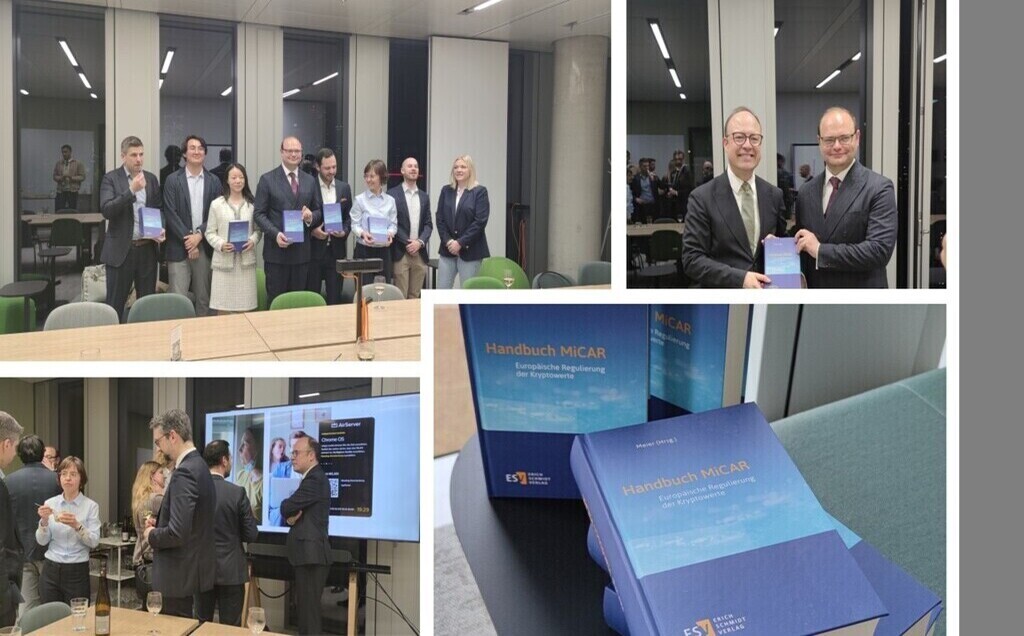Holders of crypto assets that are suitable for the so-called delegated staking may delegate their crypto assets to a staking provider in order to participate in the underlying consensus mechanism for the validation of transactions in the network. The rewards for the abovementioned participation are newly issued blockchain units, which are generated and issued by the system, and which are shared between the staking provider to which the crypto assets had been delegated and the holder of the crypto asset who delegated them. There are different forms of delegated staking, all of which have in common that they require the delegation of the specific crypto asset to a third party in order to participate in the consensus mechanism and therefore in the mining process. However, they differ in the method of how the delegation can be effectuated.
NOT ONLY CUSTODY OF CRYPTO ASSETS CAN BE CRYPTO CUSTODY BUSINESS
Service providers intending to offer crypto custody services in Germany require the prior authorization of BaFin to do so. According to the legal definition in the German Banking Act (KWG), there are currently three different actions defined as crypto custody business. Thus, the custody, management or the safeguarding of crypto assets respectively of the connected private keys for others may be qualified as crypto custody business. Staking providers, which actually receive the delegated crypto assets on their own wallets may in some cases fulfill the custody variant of the definition. According to the administrative practice of BaFin, which was published in one of the authorities’ publications, BaFin defines the custody of crypto assets as a service for a third party in a way “that the customer does not have any knowledge and therefore possibility of disposing of his crypto assets”. Therefore, custody of crypto assets in cases of delegated staking can only be assumed, if the staking provider actually receives the crypto assets in one of his own wallets from the customer.
MANAGEMENT OF CRYPTO ASSETS IN DELEGATED STAKING SOLUTIONS
However, it is in most cases not required that the holder of the crypto assets actually transfers his crypto assets to the staking provider in order to participate in the consensus mechanism. The delegation of crypto assets rather works via a dedication in a specific smart contract on the underlying blockchain to the staking provider of the holder’s choice. In these cases, the crypto assets remain in the wallet of the staking customer. BaFin qualifies the abovementioned practice in certain cases as a management of crypto assets for others and therefore as a variant of the crypto custody business which is subject to authorization. According to the legislator’s explanatory memorandum to the implementation of the crypto custody business into the KWG as well as BaFin´s own publication on the subject of crypto custody business, management of crypto assets is defined as “in the broadest sense the ongoing exercise of rights from the crypto asset”. BaFin defines validation rights as well as voting rights as rights from the crypto asset. Pursuant to BaFin´s broad interpretation it could therefore constitute a management of crypto assets for others, which is subject to authorization, should the staking customer delegate rights in the aforementioned sense to the staking provider. In this context a counter point to BaFin’s interpretation could be that the authority itself requires in its published administrative practice the actual custody of crypto assets for all three variants as necessary.
MERE PROVISION OF STAKING INFRASTRUCTURE NO CRYPTO CUSTODY
BaFin however does not assume a managing of crypto assets in cases in which merely the technical infrastructure to participate in a delegated staking consensus mechanism is provided. In such cases, when e.g. a mining node is operated and customers are only offered to partake in the validation of transactions, a regulated management activity is not conducted. A transfer of voting rights or validation rights does not occur to the effect that there is no room for assuming a crypto management as a regulated activity.
Attorney Lutz Auffenberg, LL.M. (London)
OUR BLOG ARTICLES IN A MONTHLY NEWSLETTER?
The FIN LAW Newsletter provides you with all blog articles of the month via monthly e-mail. Our newsletter is published regularly at the beginning of every month. Feel free to sign in to the FIN LAW Newsletter by clicking the button below. Of course, you can sign off at any time if you do not wish to receive our newsletter anymore.
subscribe to Newsletter






